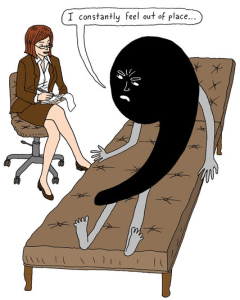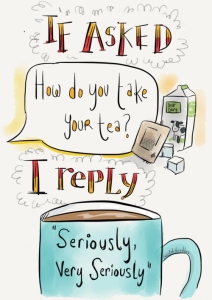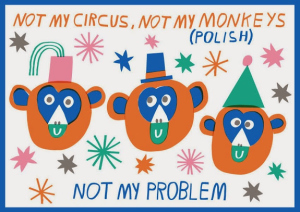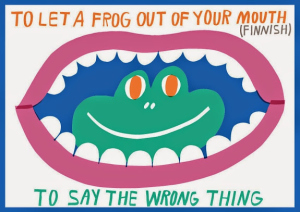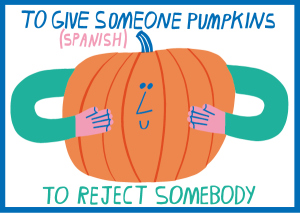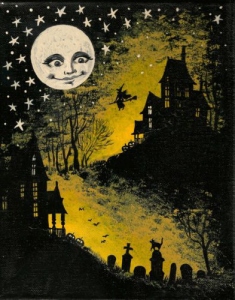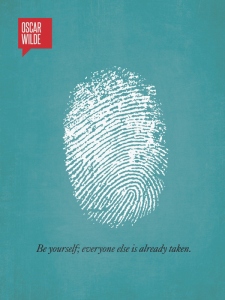‘Tis the season to be jolly!
Before we go off to unwrap gifts, eat wonderful meals and share laughter around the table, we thought we would help put you in the spirit and share some fun links with you. Happy Holidays everyone and thank you for making this job the best!
‘Tis the season! How Christmas is celebrated around the world
A short video on the History of Christmas
BBC’s Christmas Special What is YOUR Christmas wish?
Some questions to consider while you prepare for Christmas…
And if you have some free time, check out 23 Great Films according to Ebert and Siskel
A fabulous documentary on Union Glacier, Antarctica…brrrrr
We are looking forward to seeing you tomorrow for our 2nd annual Cava event, to toast and look at beautiful art!
If you didn’t get our invitation, please contact me immediately and I will share all the details with you.
Painting by Josep de Torgores “Femme au bras croisés” 1926 — Oil on canvas 60 x 73cm
This post is for all of you who struggle with those annoying mistakes in English. Perhaps it will help you start the new year on the right foot.
Speaking of common mistakes, take a look at the title…a lot of times we confuse clue (a piece of evidence or information used in the detection of a crime) for tip (a helpful hint, warning, or other piece of information)
How to avoid 11 common grammar mistakes
12 Words even smart people get wrong
Photo Source: Comma Mistakes
It’s that time of year again..so mark your calendars for December 18th from 19.00h-21.00h and stay tuned for more information.
Let the festivities begin!
It’s getting cold out there and there is nothing better than a hot cup of_________ to warm you up. So, we asked our teachers how they took their favorite drink to wake up, warm up or cuddle up with a good book/movie:
Heidi: I love my cup of jo (coffee) and all I need is for it to be freshly brewed with warm milk and two small teaspoons of brown sugar. Don’t give me coffee that has not been freshly brewed…I need fresh! And if you are wondering, I do not drink “American” coffee. I only have espresso, but I do miss the smell of a large pot of coffee brewing.
Madeleine: An English Cup of Tea:
I’m a devoted coffee drinker since living in Barcelona, (I don’t drink tea, as it’s just not the same, and I’m also not a great fan of trying to replicate traditional things in another country!) I could write an essay on British tea drinking, but this is my short personal version.
The best cup of tea is made in a pot, and when I was young, I was always taught by parents and grandparents that you must warm the pot first. (Pour a small amount of boiling water into the pot and swirl the water around to get it warm.) Then add the tea leaves, cover with boiling water and leave for 4-5 minutes.
I drink my tea with a very tiny amount of semi-skimmed milk, (poured into the cup first,) and then finally pour the tea with a strainer.
No sugar.
(Quite the opposite of ‘builders tea’!!!)
Claire My perfect “Cuppa Rosie-Lea” = Cup of Tea (Cockney Rhyming Slang from the East end of London)
– Boil the kettle
– Place your tea bag (PG Tips or Tetley brands will do nicely) in your cup
– Pour boiling (very important!) water over the tea bag
– Squish and squeeze the tea bag in the cup with a teaspoon, leaving it in to brew for a few seconds
– Get your milk (fresh cow’s milk is best) from the fridge and pour a reasonable amount into your tea
– Squish and squeeze the tea bag again until you’re happy with the colour, a nice milky beige
– Take out and discard the tea bag (never use it twice!!)
– It’s ready to drink!
– A bonus is to drink it with a nice biscuit! 😉
Tim Earl Grey tea – decaffeinated, a little bit of cold milk added when it’s brewed plus some McVities Digestive biscuits for dunking (500 year old ancient British tradition of dunking biscuits, nothing to do with USA’s Dunkin Donuts)
Photo source: http://www.twisteddoodles.com/post/54380592146/how-do-you-take-your-tea
This week’s post is all about idioms. You know, those expressions or sayings that exist in every culture and only make sense in your own culture? Well, here are a few great ones that have been translated to English. Can you think of any in your own language? How would you translate them to English? Or how would you explain it to an English speaker?
Here are some in English. How would you translate them to your own language? Can you figure out (determine) what they mean?
It’s raining cats and dogs= it’s raining heavily
Make ends meet= have enough money to cover expenses
Race against the clock= do something quickly because of a pressing deadline
Money talks= money has power and influence
When pigs fly or when hell freezes over= never
Still curious for more? Check this link out for more interesting idioms
Photo Source: http://www.hotelclub.com/blog/idioms-of-the-world-infographic/
Just in case you are wondering, a short history on Halloween and why we do what we do: Happy Halloween! and Happy Autumn Festivities! (Video Level B1 and up)
Photo source: Le Halloween Postcard Vintage Style
The other day, I came across this quote from the director Nora Ephron:
“We have a game we play when we’re waiting for tables in restaurants, where you have to write the five things that describe yourself on a piece of paper. When I was [in my twenties], I would have put: ambitious, Wellesley graduate, daughter, Democrat, single. Ten years later not one of those five things turned up on my list. I was: journalist, feminist, New Yorker, divorced, funny. Today not one of those five things turns up in my list: writer, director, mother, sister, happy.”
It is not easy to create only 5 adjectives to describe yourself, but here go mine: Determined, Optimistic, Citizen of the World, Teacher, Learner
So… it’s your turn, what are 5 adjectives that best describe you RIGHT NOW?
And to wrap up, a mini-lesson on using the reflexive pronouns:
Reflexive (adjective): To reflect back on a subject (like a mirror)
So, if your subject is the same as your object, you need to use the reflexive. Imagine your subject looking into a mirror and seeing “itself”: He sent himself an email vs They sent him an email (the subject is not the same) Subject object Subject object
Here’s a chart of all the reflexives:
I = myself I opened the shop myself
You= Yourself Please, make yourself at home
He= Himself John sent himself a copy
She= Herself Anna helped herself to seconds (she served herself another dish)
It= Itself The dog injured itself playing.
Note! Plurals must be used with the “selves” They= Themselves They drove themselves to the airport. We= Ourselves We told ourselves we would never do that again. You=Yourselves You can do your homework yourselves.
Now try some of these exercises: http://www.englisch-hilfen.de/en/exercises/pronouns/reflexive_pronouns.htm
http://www.5minuteenglish.com/jun3.htm
http://a4esl.org/q/j/tm/fb-reflexive.html
Photo Source: http://www.designyourway.net/drb/famous-quotes-illustrated-through-minimalist-posters/
In the world of business and frequent meetings, you will receive a lot of information. So, we always suggest you to stay away from (avoid/don’t use) the sentence, “I don’t understand.” That can so easily be interpreted as, “I don’t speak English” and we know that you do speak English and are trying your very best when doing it.
So, let us recommend some expressions you can use when you don’t understand something:
From Formal to Informal:
I beg your pardon?
I’m sorry, could you run that by me again?
I’m not sure I understand your point.
I’m not sure I know what you mean.
Could you be more specific?
Could you elaborate on that?
Would you give me an example?
Excuse me?
Important! Avoid using “What?” It is considered very rude or impolite
If you think you heard it, but want to make sure it is correct:
If I understood correctly, you have said…
Let me see if I have that right…(repeat what they have said to you)
Do you mean…?
In other words, what you are saying is…
Finally, if someone does not understand you, here are some helpful expressions:
Allow me to explain myself.
Let me put it differently. What I was trying to say was…
In other words…
Sorry, let me say that again.
A short video on 5 ways to listen better (a fascinating video for levels B1 and up)
A short podcast on asking for clarifications (Level A2 and up)
Great tip on how to take control of the English Language
Photo Source: http://notesondesign.tumblr.com/page/18
Welcome Back Everyone! We are on a roll here teaching and learning business English and this is more than perfect timing to remind you why languages are so easy to love. But before we do that, do you know what the quote above means? Do you have something similar in Spanish or Catalan?
So let’s talk about Linguistics. What is linguistics anyway? And why is it so fascinating? According to Webster, linguistics is the study of language and of the way languages work.
Learning a language is not just memorizing it and it is not done overnight. It is going beyond the book in your hand and exploring the language, the culture and history. So, let’s explore!
This video on Linguistics explains how languages evolve, because, they are a living thing, aren’t they? (B1 and up)
Just to prove my point, here are 10 Spanish words that you cannot translate to English words. Can you guess what they are before you click on the link?
More of our favorite Spanish words…
And a fabulous visual dictionary that shows you all the uses of a word in English
Finally, just for fun, the language of food! (reading and listening)
Have fun exploring and living the language!








